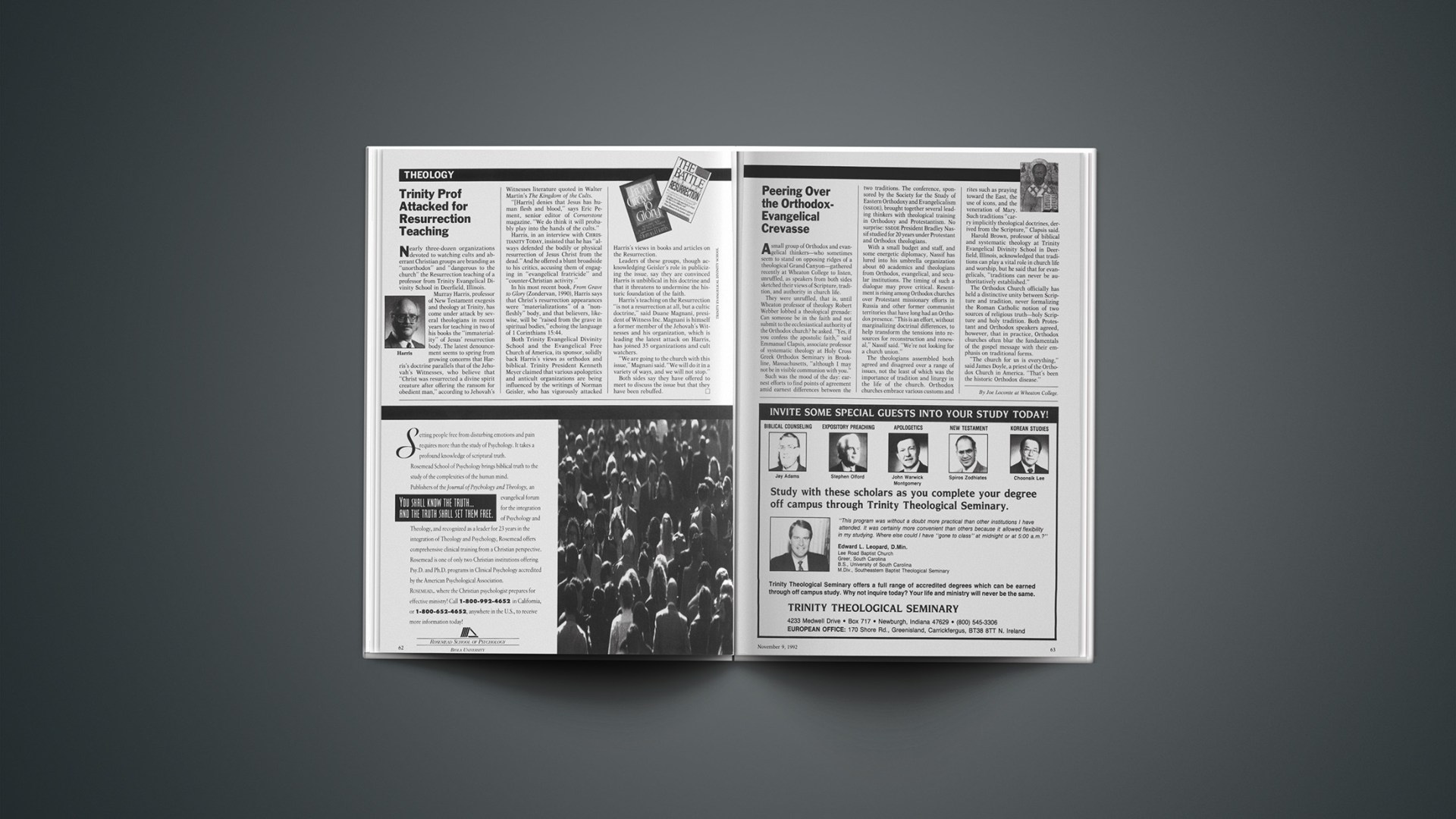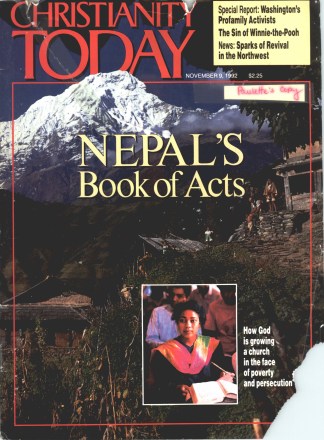A small group of Orthodox and evangelical thinkers—who sometimes seem to stand on opposing ridges of a theological Grand Canyon—gathered recently at Wheaton College to listen, unruffled, as speakers from both sides sketched their views of Scripture, tradition, and authority in church life.
They were unruffled, that is, until Wheaton professor of theology Robert Webber lobbed a theological grenade: Can someone be in the faith and not submit to the ecclesiastical authority of the Orthodox church? he asked. “Yes, if you confess the apostolic faith,” said Emmanuel Clapsis, associate professor of systematic theology at Holy Cross Greek Orthodox Seminary in Brookline, Massachusetts, “although I may not be in visible communion with you.”
Such was the mood of the day: earnest efforts to find points of agreement amid earnest differences between the two traditions. The conference, sponsored by the Society for the Study of Eastern Orthodoxy and Evangelicalism (SSEOE), brought together several leading thinkers with theological training in Orthodoxy and Protestantism. No surprise: SSEOE President Bradley Nassif studied for 20 years under Protestant and Orthodox theologians.
With a small budget and staff, and some energetic diplomacy, Nassif has lured into his umbrella organization about 60 academics and theologians from Orthodox, evangelical, and secular institutions. The timing of such a dialogue may prove critical. Resentment is rising among Orthodox churches over Protestant missionary efforts in Russia and other former communist territories that have long had an Orthodox presence. “This is an effort, without marginalizing doctrinal differences, to help transform the tensions into resources for reconstruction and renewal,” Nassif said. “We’re not looking for a church union.”
The theologians assembled both agreed and disagreed over a range of issues, not the least of which was the importance of tradition and liturgy in the life of the church. Orthodox churches embrace various customs and rites such as praying toward the East, the use of icons, and the veneration of Mary. Such traditions “carry implicitly theological doctrines, derived from the Scripture,” Clapsis said.
Harold Brown, professor of biblical and systematic theology at Trinity Evangelical Divinity School in Deerfield, Illinois, acknowledged that traditions can play a vital role in church life and worship, but he said that for evangelicals, “traditions can never be authoritatively established.”
The Orthodox Church officially has held a distinctive unity between Scripture and tradition, never formalizing the Roman Catholic notion of two sources of religious truth—holy Scripture and holy tradition. Both Protestant and Orthodox speakers agreed, however, that in practice, Orthodox churches often blur the fundamentals of the gospel message with their emphasis on traditional forms.
“The church for us is everything,” said James Doyle, a priest of the Orthodox Church in America. “That’s been the historic Orthodox disease.”
By Joe Loconte at Wheaton College.










